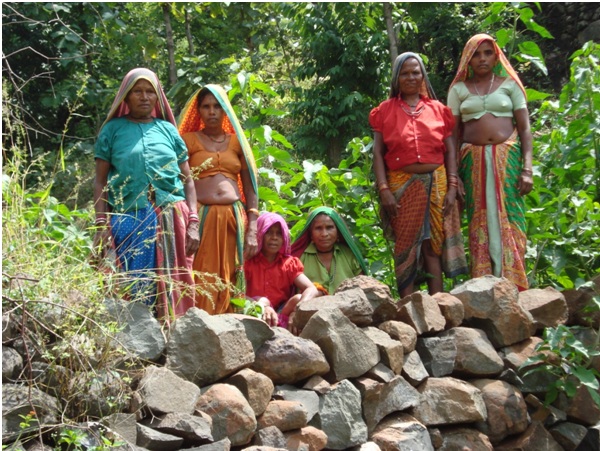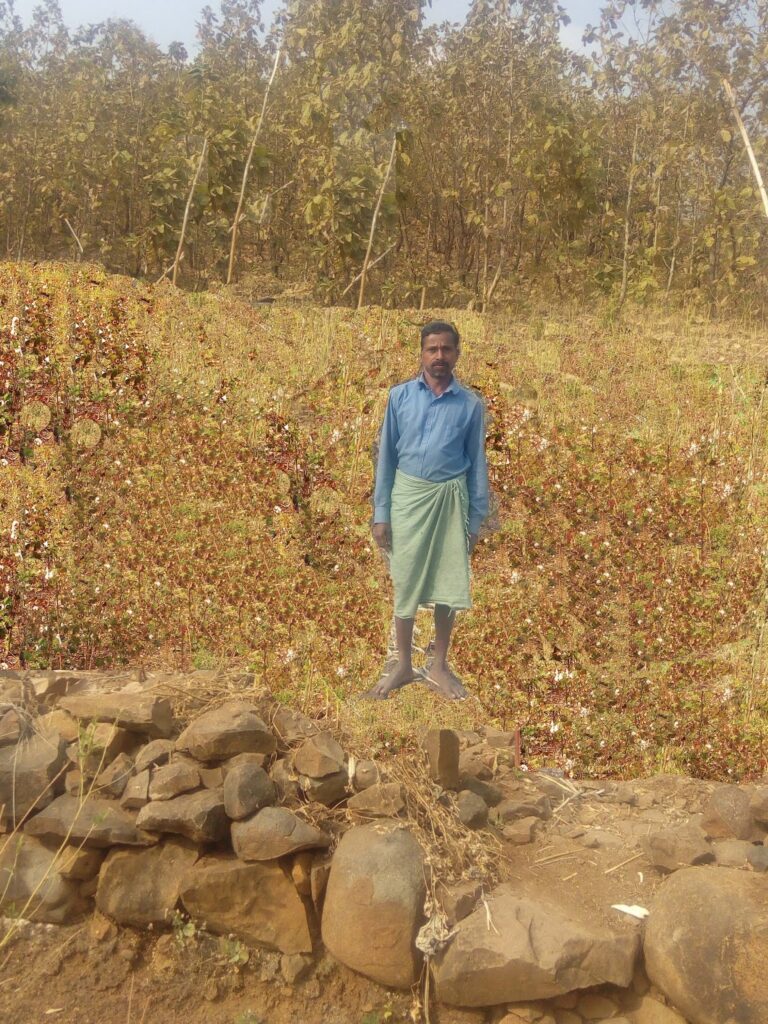
MAJLIS has organised the villagers into small groups of ten to twelve farmers each who then pool their labour and cooperate with each other to perform their agricultural operations together and also undertake soil and water conservation activities. This is in fact a revival of a traditional labour pooling system called Dhas. This system had fallen into disuse because the intrusion of the market economy and the destruction of the natural resource base had destroyed community institutions. Considerable effort was expended to revitalise this system and it has paid rich dividends. Apart from this external funding was also sourced on two occasions for soil and water conservation work and the Mahatma Gandhi National Rural Employment Guarantee Scheme was also leveraged. The cumulative voluntary work done in soil and water conservation in the two decades at current rates amounts to about Rs 15 crores . A major feature of the cooperative soil and water conservation work is the equal participation of women in it. This has not only empowered women within the traditional Bhil society which is highly patriarchal but has also given them a greater say in household affairs. A picture of women working on a gully plug to create a new farm in Gendra village is shown along side.
The intensive soil and water conservation work and the forest conservation over 25000 hectares across seventy villages, have together ensured that both natural and artificial recharge in the villages of the organisation have increased considerably and so the streams are now flowing perennially throughout the year. This enhanced water availability combined with the availability of electricity and diesel for pumps has meant that there is considerable irrigation in these villages whereas earlier there was none. The soil and water conservation work has also ensured the greater availability of soil moisture and so double cropping has become possible even without irrigation. The egalitarian distribution of land has ensured that the water is equally distributed.
The centres in Pandutalab village in Dewas district and in Kakrana in Alirajpur district have been made green from their earlier barren terrain through extensive forest, soil and water conservation work and are pilot projects for such small scale ecosystem restoration work.
The Indore Office of MAJLIS is an excellent example of localised household level urban water and energy conservation being both water and energy positive.

